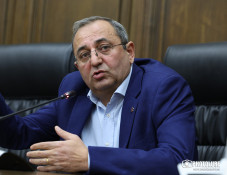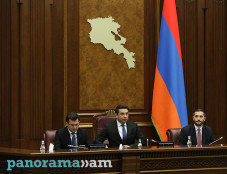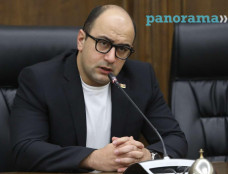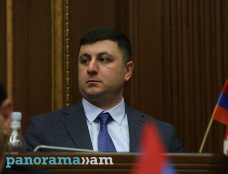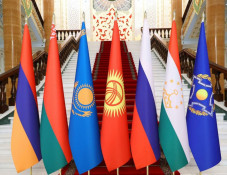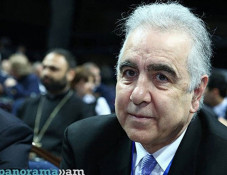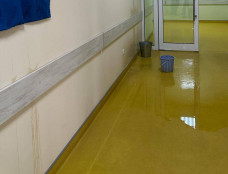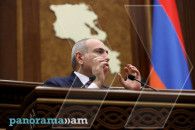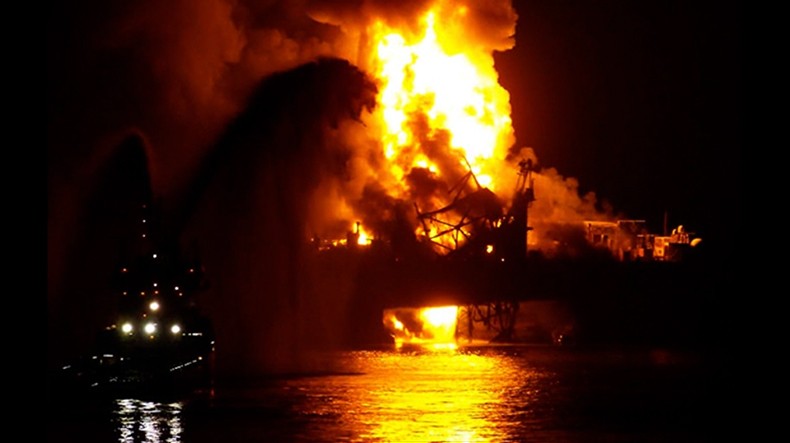
News reports: Azerbaijan authorities intend to reduce and camouflage Gunashli oilfield tragedy at maximum
Ilham Aliyev declared 6 December a mourning day in Azerbaijan for the fire that broke out on Gunashli sea oilfield platform on 4 December 2015, local APA news agency reports.
However, some TV channels breached the law on advertisement, which forbids airing advertisements on mourning days, and showed them on that day, the head of the Department of Expertise, Programming and Analytic Work of the NTRC, Tevekkul Dadashev said, according to the agency.
Haqqin.az reports that despite the presidential order for the mourning day, ‘the traditional pandemonium and average shows continue in some TV channels.’ Readers told the website that the channel Space showed a ‘stupid Indian film with songs, dances and equestrian competitions under the spectators’ hooting and whistling.’ To justify itself, the TV channel sent a response to Haqqin.az saying that it was not a comedy but a tragedy about ‘the tragic fate of a Mother who heroically endured natural disasters (flood, fire) and hardships of life for the sake of her children.’
Turan agency writes about the reasons of the tragedy at the oil field. “An effective inspection of the various aspects of the incident reveals technological, industrial, administrative and security problems at sea oil production, which could bring about the tragedy,” the agency writes and points out that this has been the third accident on sea platforms in Azerbaijan over the past three years.
The first accident since Azerbaijan’s independence happened in 2013 during exploration works drilling oil well number 90, Bulla Deniz, of the State Oil Company of Azerbaijan (SOCAR). There were no victims back then, but it took three months and the help of foreign companies, as well as the Emergency Ministry and the Navy of the Border Troops of Azerbaijan to put out the fire. The second one happened on the oil and gas production unit after N. Narimanov. It was a collapse and fire on platform 441 40km to the south of Baku in 2014, which took the lives of 41 people.
“Three consecutive disasters on sea platforms at a small company as SOCAR, if taken in global measures, evidences unprofessional management in all of the circles of the company and requires a serious reconsideration of the personnel and the whole administrative system. They say, once is chance, twice is coincidence, third time is a pattern,” the agency writes.
The agency noticed that all the three accidents followed each other since the oil output drop at the sea fields in the frameworks of the Contract of the Century, that is, since 2012. “It remains unknown whether SOCAR observed the rules for carrying out the scheduled works,” the agency points out and notes that the platforms need scheduled major repairs on a regular basis.
Referring also to security issues, Turan adds that the videos of the burning platform show that the producing part of the platform was burning, while the fire did not touch the life support structures.
According to the agency, there is every reason to believe that the people on the platform were in panic and did not manage the situation acting without instruction, which proves that the personnel was very badly taught what to do in emergencies.
“Evacuation was not properly organised. Security measures were not observed, either. That was one of the reasons why people got flustered during the accident. Four lifeboats were hanging on the sides of the platform. I learnt that one of the boats hit the platform stilt making the people drop into the water. In there were four boats on the platform, how people got into two of them? Why were there 40 people in one boat?” chair of the Committee for the Protection of Oil Industry Workers' Rights, Mirvari Ghahramanli, told Haqqin.az. She compared the situation with the company BP which always has a rescue ship next to the platform. Recently, the whole BP personnel were immediately evacuated because of some problems on the platform.
Turan also notes the unpreparedness to act during emergencies, observed in all the branches of the authorities. This found its reflection in the quality of the information provided. “The initial false signals that all the workers were rescued, that the situation was under control followed by veiled reports about the searches of those lost, and finally, the lack of information about the number of those missing is also an indicator of the confusion in handling the situation,” the agency points out.
Azerbaijan authorities’ actions intend to ‘reduce and camouflage the tragedy at maximum.’ This is all about ‘saving the reputation of the authorities rather than admitting and solving the problem,’ the agency writes drawing parallels with the fire at a residential building in Baku this May, where 16 people, including five children, were killed because of high-ranking officials.
Haqqin.az writes about an incident at the Oil Rocks field, where, during a windstorm, the waves washed out a booth with three workers, Javad Khudaverdiyev, Bakhman Jafarov and Rovshan Mammadov, inside. The website wonders ‘how the water could possibly wash out a booth’ and demands that the respective state committee ‘make out’ the situation.
Further, the website describes the ‘miscalculations’ at the rig structure which resulted in the workers getting injuries. In particular, the berths at many of SOCAR’s rigs having helicopter platforms were constructed for receiving cargo rather than taking out people. “As a result, SOCAR’s workers had to jump on the berth from the ship, which is very dangerous. In many cases, the workers received injuries of varying severity. Still, nothing changed,” the website writes and highlights that the women working at the company also had to jump on the berth from ships. Remarkably, those complaining of the working conditions, receive the same response, “If you do not like it, write a letter of resignation.”
Mirvari Ghahramanli told the website about the awful working conditions, where the workers are taken on ships whose service life has long expired. “Last year, a worker died of a heart attack because of the overcrowded ship. Another one fell off the board and drowned. Despite numerous complaints, the company is not concerned in purchasing new ships. The workers have to go to work standing on board the ship without respective security equipment,” the website cites Ghahramanli as saying.
The website also notes the accidents which remained out of the sight of the media. On 15 March 2014, four workers of a SOCAR oil and gas construction group fell into the sea as they were dismantling unserviceable estacades on the Oil Rocks field in the Caspian. Ghahramanli says this proves that the security measures are not properly observed at SOCAR. Remarkably, neither SOCAR nor the Interior Ministry of Azerbaijan reported on the incident.
According to Haqqin.az, the systemic problems connected with the labour security, particularly, on the oil platforms in the open sea at SOCAR, were evident well before this tragedy happened. “The statistic of those accidents and victims has not been revealed for a long time. Everyone got used to the situation that the problems should not be voiced. Criticism is a thankless job in our country even if it is done for good reasons. What you receive for that is just lumps and harsh blow-ups!” the website writes.
According to the statistic of the Oil Workers Right Protection Organisation, 21 workers were killed in nine months of 2011; the figure was above 20 in 2014, while there are dozens who got injuries.
“Sources in our oil industry say that the department 28 May, where the tragedy happened, has been in a horrible plight for several years. The service life of the oil platforms has expired long ago. What holds their basis is ‘the word of honour,’ this making labourers’ work in the sea fatally dangerous,” the website writes. It highlights that the oil workers are already used to bidding farewell to their family every time because they realise that it can be the last time and that they could possible never return to the coast.
Haqqin.az also notes the problem of the media covering the tragedy and the Azerbaijani citizens’ trust for the local press, which is ‘significantly less than for the foreign press.’ “Because the local media are degrading every day. Because the local media are driven into a corner forced to keep silent on many problems. Because iron batons are hanging above our heads… We are afraid to raise our head. Because we cannot even get a simple comment at state and governmental agencies. Because we are not considered to be people!” the website writes. According to Haqqin.az, the TV ‘associated with poor quality and spinelessness’ died out first; now an attempt is made to ‘kill what remains of the independent online journalism, meanwhile brandishing on the social networks, too.’
On Friday evening, 4 December, a fire broke out on the platform of oil and gas producing department 28 May of Azneft production union in the shallow part of the field Gunashli, which provides over 60 percent of the output of SOCAR (State Oil Company of Azerbaijan). The fire was the result of an accident on a gas pipeline on the oil platform number 10, which was caused by a windstorm. According to preliminary information, there were between 60 and 85 people on the platform, of whom 33 are rescued, seven were killed and 29 are missing.
Newsfeed
Videos





